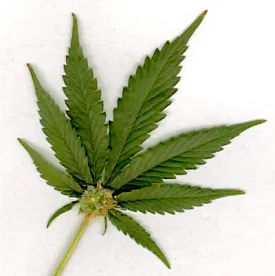In November 2020, Montana joined Arizona, New Jersey, and South Dakota in legalizing recreational cannabis use. Montana voters approved a pair of ballot initiatives on November 3, the Marijuana Legalization Initiative (“Montana I-190”) and the Allow for a Legal Age for Marijuana Amendment (“Montana CI-118”), both of which needed to pass for recreational use to become legal for adults 21 and older.
The ballot measures mean that the personal recreational possession and use of cannabis became legal in Montana starting on January 1, 2021. While the Montana state legislature and Department of Revenue are still developing additional rules and regulations regarding commercial licensing for dispensaries and cultivation facilities, the ballot measures are the first step toward the vast expansion of the cannabis industry in Montana, which has already had legal medical cannabis use for several years. The new laws will present new opportunities as well as important new rules for businesses to be aware of, including the forthcoming license application process, advertising rules, and impact on company drug policies.
Retail Establishments, Licensing, and Other Commercial Rules
The Montana Department of Revenue has until October 1, 2021, to establish licensing rules and regulations and to begin accepting applications for dispensaries and cultivation facilities. Under the anticipated plan, current licensed medical use dispensaries will have 12 months to apply for recreational licensing before the process opens up to the general public.
While the Department of Revenue and state legislature will likely issue rules and guidance clarifying the licensing process and the applicable regulations, the ballot measures themselves included some provisions relevant to future cannabis business operations. For example, all advertising by licensed businesses will be prohibited, including via social media. And while businesses will be allowed to have websites, they will not be permitted to “actively solicit consumers or out-of-state consumers through the website.”
Additionally, local governments will have the authority under the new law to adopt ordinances or regulations applying to any licensed commercial business within their borders, as long as those regulations are not “unduly burdensome.” Individual counties will also be able to prohibit dispensaries within their borders through a public vote. Thus, the specific rules and regulations that will apply to prospective dispensaries and cultivation centers remain uncertain.
New Rules for Possession and Personal Use, and Impact on Employment Policies
Under the new regime, a person over the age of 21 is allowed to possess up to one ounce of marijuana, or up to eight grams of marijuana concentrate and will be allowed to grow up to four marijuana plans for personal use.
However, the measures also include additional restrictions on the public use of marijuana. For example, there is a ban on smoking or consuming marijuana products in public spaces, unless local jurisdictions designate specific places to do so and a ban on operating a vehicle while under the influence of marijuana. It remains to be seen if the legislature will consider holding establishments and persons potentially financially liable for injuries that result after they furnish marijuana to someone later involved in a driving incident while under the influence. Montana’s law, which allows such liability for those who furnish alcohol to individuals later involved in drunk driving, would need to be amended to extend to those who provide marijuana.
Additionally, the new law still grants employers the right to enforce workplace drug policies. Under the state’s previous medical marijuana regime, employers were broadly permitted to require drug testing and the law explicitly stated that the legalization of medical marijuana did not prevent employers from prohibiting marijuana use, even if it was legally prescribed and used only outside of work. Indeed, that issue previously made its way to the Ninth Circuit Court of Appeals after an employee sued his former employer for terminating him over his legal medical marijuana use. The employee used medical marijuana, off-duty, to treat a chronic condition, but was fired when a drug-test revealed THC in his system. The court agreed with the employer that the exemption in the Medical Marijuana Act allowed it to dismiss the employee and that the provision did not present any constitutional concerns.
The new law for recreational use includes the same provision allowing employers to prohibit marijuana use. Therefore, employers will continue to be free to enforce their workplace drug policies. This will include, presumably, the right to discipline and terminate employees for legal recreational cannabis use, regardless of whether it is done on or off-duty.
Taxing and Revenue
The new rules establish a 20 percent tax on sales of recreational marijuana by licensed vendors and specify that 10 percent of that revenue will go into the general state fund, with the remainder “dedicated to accounts for conservation programs, substance abuse treatment, veterans’ services, health care costs, and localities where marijuana is sold.”
The proponents and authors of the measures estimated that legalization will generate about $48 million annually in tax revenue and licensing fees by 2025.
Uncertain Future
The success of ballot initiatives in Montana and in other states are major victories for legalization activists and present enormous opportunities for businesses and the already expanding cannabis industry. However, in Montana at least, legalization still faces an uncertain future. Several state legislators have already announced that they are drafting a bill to repeal the measure, and the Montana Department of Revenue’s forthcoming rules for licensing will likely face extensive challenges from opposition group. Fewer people may buy cannabis when they understand the risk to their employment. As of now, though, by this fall businesses will begin applying to enter the Montana cannabis industry.




 />i
/>i

